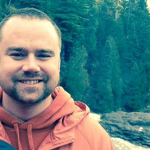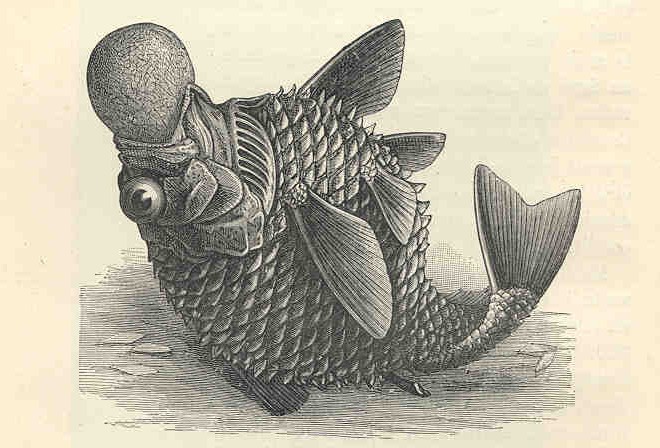Thinking our readers might enjoy hearing about the editing experience here at Runestone, CWP Communications Assistant, Jenniey Tallman, recently took a moment to interview Andrew Sposeto.
Andrew (aka Spo) was the Creative Nonfiction Associate Editor for volume one—responsible for guiding the CNF editorial board as they read through submissions and learned about publishing. Curious about our editorial process? Read here for more.
J: Hello Andrew and thank you for taking the time to talk with us. To start off, could you tell us a little about yourself? Where are you now—what are you working on?
A: I’ve just finished my Master’s Thesis, a collection of essays loosely focused on the theme of modern masculinity, a memoir-laden attempt at understanding myself through stories about men who have affected my life. I haven’t been writing much—I’m at one of those decompression points in my writing life, where I find my time is better spent reading, reflecting and seeking out new experiences. I’ve always admired writers who seem to have that bottomless well of ideas, but I am not that writer. Much more mechanical. I run out of gas and I put the onus on the world to fill me up again.
I’m currently teaching undergraduate creative writing, where my joy lies in reading student work. I’m always amazed to meet a new class and see talent manifest itself through creative work. For some of the students, this is their first time engaging with writing creatively, and to watch personality and genuine, youthful energy shape writing, void of many of the constraints they are used to, can be a huge inspiration for my own writing. The choices these kids make!
It sounds like you are really enjoying yourself. So, tell us: what was the most enjoyable part of working on Runestone?
Being challenged by my students. My goal going into my work with my editorial board was to empower them as much as possible—to have them do the work as editors and to cede final decisions to them. I didn’t anticipate how eagerly they would be to take the reins. From day one, my editorial board took ownership of both the experience and the product and shaped the discourse we had around creating this journal in some weird, conglomerate mold reflective of a group of very unique voices. Because they bought in so soon and so thoroughly and were so willing to challenge the opinions I brought to the table in the same way they challenged each other, the dynamic for how we operated was really special. Almost as if we had this dramatic arc throughout our process—some nights we’d leave exasperated with each other, but by the end it was as if we had won some small battle together.
Is there anything else that surprised you about teaching the class and editing the journal?
I was genuinely surprised by both the capacity of my editorial board to engage with the work we read and their ability to arrive at a consensus. And, that we were able to arrive at a point towards the end where, despite a markedly diverse editorial board, we had a clear vision of what we wanted the nonfiction section to represent—from content to aesthetics, and from what voices we valued to an emphasis on rewarding innovative writing. An editorial board is this weird place where creativity meets politics—that we, as a group, could navigate the two disparate poles as well as we did, I found surprising.
Given your experience reading CNF for Runestone, what is the best advice you can give undergraduates who are considering submitting their work for publication?
Particularly for creative nonfiction writers, my one bit of advice would be to consider audience. In determining what pieces would move from our general submissions list and onto the consideration of the larger editorial board, I had one simple sniff test: did the piece read like a diary or journal entry? Consider the audience.
Make sure everything in your writing—each sentence, each image—is working for the reader. The process of creative writing is not complete until someone has read your work. You, as a writer, are working for them, the reader. It is your job to provide everything to make the experience of reading your piece pleasurable for the reader. Journaling is a great exercise, but writing, in its completed form is so much more. A piece of CNF should never read as if it means more to the person who wrote it than the reader themselves.
A more general piece of advice, for those working in all genres, would be to take risks. Everyone submitting to Runestone is a young writer. Likely, if you place a piece here it won’t be your last. So have fun with your piece. Take risks. Experiment with form. Push the boundaries of your creativity to new places. As an undergraduate journal, we reward striving to create something new.
Lastly, would you let us know some other online publications you admire?
I read a ton online: n+1, the Believer, Brevity. Too many places to name here. What excites me most about online publication, as a CNF writer and a lover of the personal essay and long-form journalism, is that online publication is not bound, quite literally, by page count. The space this provides us as writers (long-winded writers, like me) is important.
I’m too young to complain about this age of social media, but one thing I do decry is the impulse to posit the first idea or commentary rather than to chew on something and provide a considered and lived-in response. I look at some of the long-form CNF out there as a perfect antidote to this insta-culture.
Longform.org is a great resource for people looking to explore some of the best in that genre. I’m a huge nerd. There is nothing I look forward to more than a Sunday morning, a cup of coffee, and a spare half an hour or so engaging with a writer who has devoted the whole thing to their piece.
Thank you for those insights, Spo. Best wishes with your writing and teaching endeavors!
Readers: If you are trying to reconcile the featured image on this blog with this interview, look no further. Spo mentioned “decompression” and that is an image of a fish in a state of decompression.
Stay tuned for more posts from this semester’s student-editors, coming soon.
 A.P. Sposeto is a writer, teacher, and sore loser at board games. Born in Minneapolis and raised in a constant state of incomprehension, Spo travels the world searching for small grains of meaning to rejoice and write about. Although he was born with six fingers on his right hand, he possesses no sword fighting skills. Spo recently completed his MFA through Hamline’s CWP, where he now teaches.
A.P. Sposeto is a writer, teacher, and sore loser at board games. Born in Minneapolis and raised in a constant state of incomprehension, Spo travels the world searching for small grains of meaning to rejoice and write about. Although he was born with six fingers on his right hand, he possesses no sword fighting skills. Spo recently completed his MFA through Hamline’s CWP, where he now teaches.


